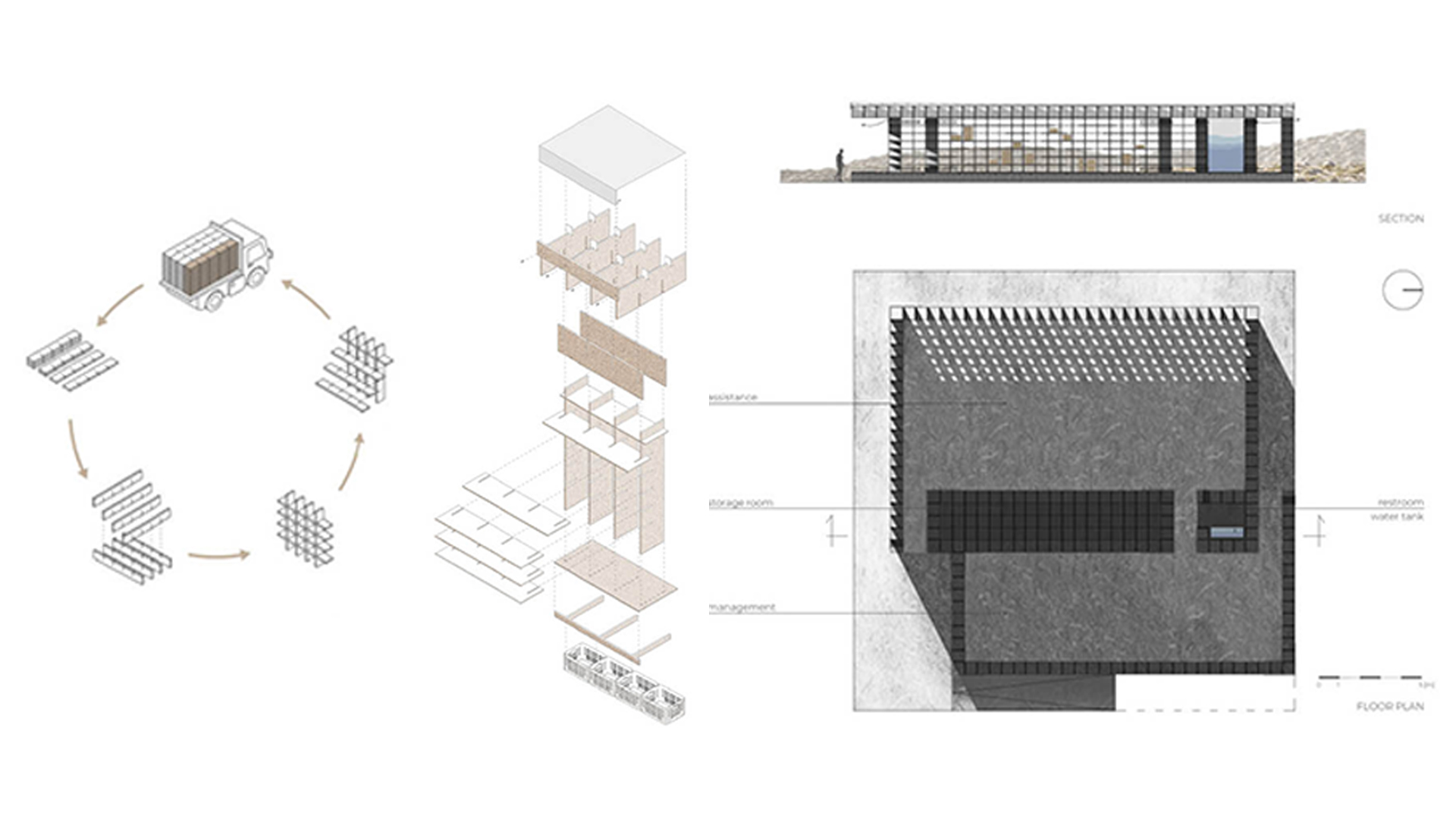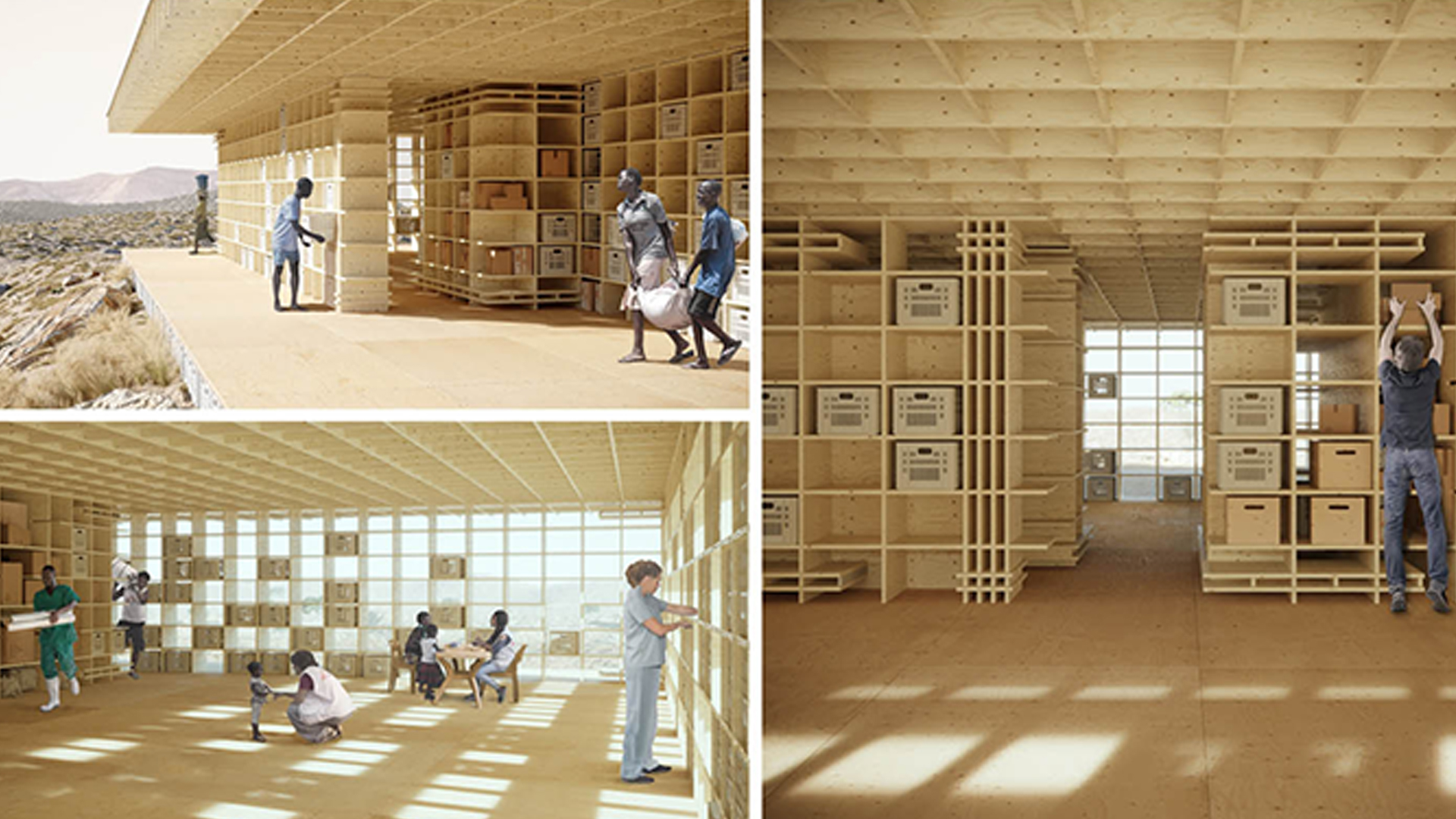A foldable emergency shelter
Prefabricated plywood boards with cuts can be used to construct emergency shelters, supporting humanitarian efforts on site. Students Aleksandra Wróbel and Agnieszka Witaszek (Msc AUBS) and Kamil Owczarek (exchange students) designed the shelter, which can be folded and transported to the designated location on just one truck. Their design won the first prize in the Kaira Looro Architecture Competition.
The foldable emergency shelter aims at providing immediate relief after disasters. The shelter is characterised by an easy assembly and disassembly process, a compact and flexible structure, and an adaptability to rapidly changing conditions. Rectangular plywood boards with cuts are the single prefabricated elements necessary to construct the shelter, resulting in a waffle-like wall construction. The system provides a wide range of flexibility. Each wall can be easily adapted to current needs by adding or removing horizontal and vertical boards. Ergonomic dimensions of each board make it possible to pack all elements on one truck and easily transport the components to the designated site.
The construction system also has a utilitarian function: the waffle structure offers space to store packages with goods. These can be arranged to provide privacy inside. The shelter is also equipped with a storage room, a composting toilet using wood shavings, and a tank for collecting and filtering rainwater.
Students Aleksandra Wróbel, Agnieszka Witaszek, and Kamil Owczarek received € 5.000,- and an internship at Kengo Kuma & Associates in Japan for their first prize in the international competition. Wróbel: “We are overwhelmed with joy and gratitude to be winners of the 4th Edition of the Kaira Looro Competition. Especially the internship at Kengo Kuma & Associates - will be a chance for us to see how one of the world's most reputable architectural practices functions. The experiences that we will acquire there will be a highly valuable source of knowledge. Winning this competition might even become a base for us to start our own practice. This competition has proved that we complement each other at work.”
The collaboration between the students is not incidental, remarks Wróbel. “We were already looking for a particular competition to take part in.” The students chose the Kaira Looro competition due to the humanitarian character of the organisation. “All participation fees are donated to the non-profit organisation Balouo Salo, meaning our participation already contributed to improving life conditions in disadvantaged areas of Senegal. This was the main motivation to participate in this competition. It also has influenced our approach and focused our minds to a human-centered approach.”


